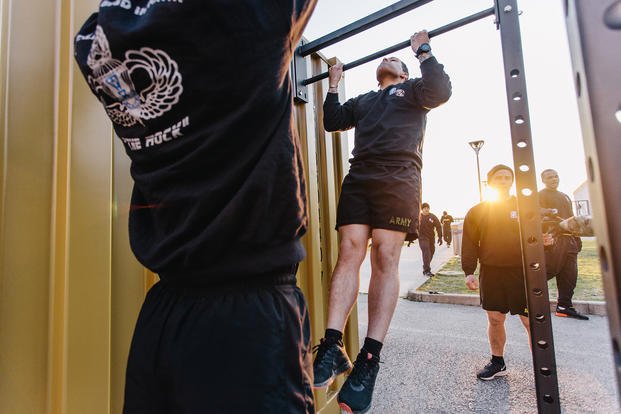Young men and women often ask me about training for the military and police officer professions, but unfortunately most of them (about 60% who email me) have to lose weight to meet the minimum requirements for the height, weight and body-fat standards.
The military refused more than 47,000 people, because they did not pass those standards last year. Those who are overweight typically are not meeting the minimum physical fitness standards for their chosen branch of service, either. Losing weight and getting fit for duty can be extremely challenging and potentially injurious. I generally respond to these eager men and women with a system that has been working for years.
The goals are effective weight loss through increased calorie burning by using non-impact aerobic activities like biking, rowing, swimming, elliptical gliding and walking. But we also introduce a progressive fitness gain program that will prepare them simultaneously for fitness testing and daily training events.
Usually, if a significantly overweight person tries to "run off the weight," overuse injuries occur and will manifest themselves as knee pain, shin splints or stress fractures, and lower back and hip pain.
The program that has been working for years and is free is my 45-day plan that slowly introduces daily fitness habits to a pre-recruit's life. Adding more water and dropping sugary treats and drinks also are needed to see optimal results. But learning how to eat properly is a must in order to have the energy required to exercise.
I tend to supplement this free routine with a great core routine that will help you tighten your lower back and abdominal region, as well as strengthen the hips and legs with flexibility and strength. Of course, there are many other ideas for great non-impact aerobic fat-burning options, as well as a specific training guide at the Fitness eBook Store.
Some of my workouts require finding pull-up bars and a way to do sit-ups with your feet stabilized. Many recruits have problems with certain exercises, such as push-ups, sit-ups, pull-ups and backpack walks. There are a few exercise pieces that I would recommend to beginners that could assist them with building a great foundation of fitness.
All tests will be conducted with a holder, so it helps either to have a buddy hold your feet during sit-up tests and workouts or have another way to sturdy your feet.


See the Lebert Equalizer if you do not have access to low pull-up bars for assisted pull-ups, as well as push-ups, core exercises and other full-body workouts. I like the assisted pull-up/row, using this piece for folks who cannot do pull-ups yet.
These bars also provide a stable platform to do incline push-ups and dips for those having issues with push-ups as well. But there are more than 85 exercises you can do with this piece of equipment, and I have seen it come in handy with making many home gyms more user friendly. See Lebert's website for more pictures.
The Lebert dip

The Lebert dip: Up position

The Lebert row/assisted pull-up

The Lebert row/assisted pull-up: Up position

I also have seen much success with the TRX and Perfect Pushups. As I perform presentations around the United States and receive emails from folks, many people have doubled push-up scores, increased their core strength and noticed less back pain after using these products.
I still use them with my advanced workouts, but even beginners can use them. They have scalable programs that fit any level. See videos of them in use at the pool and on the running trail:
These programs and devices can help take you from a beginning exerciser to a top-level military or tactical athlete. It takes time and determination to do them smoothly every day. But if you are motivated to serve your country and realize that your fitness level can be a determining factor of life or death for you, your partner or a victim you are trying to help, you can do this.
Keep up the work and good luck with your choice of honorable professions.
Stew Smith is a former Navy SEAL and fitness author certified as a Strength and Conditioning Specialist (CSCS) with the National Strength and Conditioning Association. Visit his Fitness eBook store if you’re looking to start a workout program to create a healthy lifestyle. Send your fitness questions to stew@stewsmith.com.
Want to Learn More About Military Life?
Whether you're thinking of joining the military, looking for fitness and basic training tips, or keeping up with military life and benefits, Military.com has you covered. Subscribe to Military.com to have military news, updates and resources delivered directly to your inbox.



















